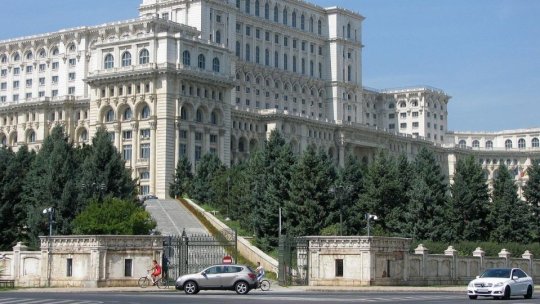Economic Growth and Fiscal Relaxation
NBR Governor Mugur Isaescu warns that, without fiscal stability, the free market economy cannot operate properly and efficiently, and fiscal relaxation is reduced to “a hoax.”

Articol de Radio România Internaţional, 08 Octombrie 2015, 06:58
The National Bank of Romania Tuesday released its financial stability report, which this year focused on an analysis of the private sector, considering that one-third of Romanian companies operate in the red and fail to make efficient use of a major financing source, namely European funds.
According to the document, at present there are no severe systemic risks, however two major systemic threats may be identified.
The first one has to do with uncertainties in the international economic system, whereas the second one is related to a possible return to inadequate domestic economic policies.
Other moderate risks are linked to the continued modest performance of company loans, the threat of contagion from the Greek banking sector and loaning risks, although the latter are declining.
The central bank governor Mugur Isarescu has once again warned that with any tax cut, as laid down in the new Fiscal Code, financial stability must be taken into account.
He added that unless macro-stability is preserved, the economy will stand to lose.
“A relaxation of fiscal policies, unless operated so as to preserve macro-stability, is a mere hoax. Because you give something to someone, let’s say, to those who benefit from the tax reduction, but then you charge society as a whole, through inflation, higher interest rates, exchange rate depreciations and, most importantly perhaps, through arrears in budgetary payments, which are a non-transparent tax and, implicitly, hard to measure”, Mugur Isarescu said.
One of the key topics in the report was Romania’s public debt.
According to the National Bank Governor, this is critical to a long-term economic growth.
“At present Romania’s public debt is sustainable. A continued rise in the share of the public debt in the GDP, which is a problem, may become dangerous, counterproductive and may lead to very difficult situation. Compliance with the medium-term target, in the coming years as well, will ensure that an annual deficit target is met, the total public debt increases moderately from one year to the next, so as to enable the national economy to grow”, Mugur Isarescu added.
In its latest report, the IMF has significantly improved its forecasts on Romania’s economic growth rates for this year and the next.
The country’s GDP is now expected to go up 3.4% in 2015 and 3.9% in 2016, as against 2.7% and 2.9%, as estimated in spring.
The Fund also forecasts a negative 0.4% inflation rate for this year, and expects it to stay negative next year as well.
The IMF also warns against the high geo-political risks in Ukraine and the impact of the refugee crisis, which is predicted to entail economic and social costs.









